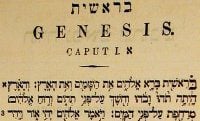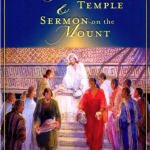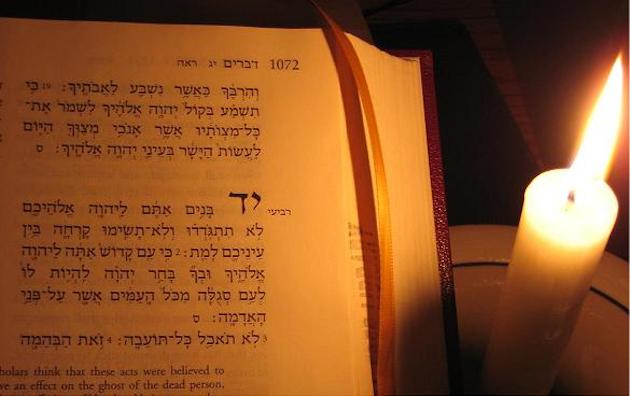 Elder Eyring told a story in this recent General Conference.
Elder Eyring told a story in this recent General Conference.
My father… was a seasoned and wise holder of the Melchizedek Priesthood. Once he was asked by an Apostle to write a short note about the scientific evidence for the age of the earth. He wrote it carefully, knowing that some who might read it had strong feelings that the earth was much younger than the scientific evidence suggested. I still remember my father handing me what he had written and saying to me, “Hal, you have the spiritual wisdom to know if I should send this to the apostles and prophets.” I can’t remember much of what the paper said, but I will carry with me forever the gratitude I felt for a great Melchizedek Priesthood holder who saw in me spiritual wisdom that I could not see.
A few of my friends thought this put a nail in the coffin of the anti-evolutionists, but it doesn’t really. See, we need to talk about the different kinds of creationism and define some terms, before we do the backstory to Elder Eyring’s comment.
We can break up different kinds of creationism based on two factors: the age of the earth and the degree of “special creation,” which refers to the creation of a species (animals or humans) in their current form, i.e. no evolution, no changes. Some creationists hold to the evolution of animals, but a special creation of Adam and Eve. Here’s a simplified generalized taxonomy.
- Natural Evolutionists say the earth is billions of years old, and humans and animals evolved.
- Theistic Evolutionists say the earth is billions of years old, and humans and animals evolved as part of God’s plan, under his control or influence. This, I believe, was Henry Eyring Sr.’s position, and is the most compatible with generally-established science.
- Old Earth Creationists (OEC) agree the earth is billions of years old but hold to special creation of humans (and sometimes animals) in the last few thousand years. This appears to be the unofficial position of the LDS Church and has some conflict with generally-established science. It’s the explicit position of the Seventh-day Adventist Church and Ben Carson (see my article here and follow-up here.)
- Young Earth Creationists (YEC) hold to special creation of humans and animals (usually), in the last few thousand years. This was Joseph Fielding Smith’s position and has the most conflict with generally-established science. (More on this below.) It’s based on the assumption that revelation consists of scientific facts, because that is what Truth is, and God cannot lie. Prophets are mere conduits, and their humanity in no way affects or influences the divine message. We should understand scriptural and prophetic statements, whether 50, 100, or 2000 years ago, as if they were all spoken within the worldview and knowledge horizon of today. YEC views come from applying these assumptions to Genesis (with a little Paul or Nephi mixed in) and then reworking the science to fit.
I find those assumptions to be more the unconscious intellectual inheritance of the scientific revolution and Enlightenment than good scriptural theology, and largely indefensible on several grounds. I spend a good bit of time in my book talking about the nature of revelation, prophets, and scripture. Back to Elder Eyring and his father.
Henry Eyring Sr. was a brilliant chemist, teaching at his PhD alma mater Princeton from 1931-1946. To quote from Wikipedia,
Henry Eyring (February 20, 1901 – December 26, 1981) was a Mexican-born American theoretical chemist…. A prolific writer, he authored more than 600 scientific articles, ten scientific books, and a few books on the subject of science and religion. He received the Wolf Prize in Chemistry in 1980 and the National Medal of Science in 1966 for developing the Absolute Rate Theory or Transition state theory of chemical reactions, one of the most important developments of 20th-century chemistry. Several other chemists later received the Nobel Prize for work based on it, and his failure to receive the Nobel was a matter of surprise to many.
I’ve written about him before here. Eyring wrote Faith of a Scientist explaining some of his views, and the more recent volume Mormon Scientist: The Life and Faith of Henry Eyring is a quasi-biography that is well worth reading. The latter contains thoughts like this on the nature of science, religion, and assumptions or “postulates.”
[In both science and religion,] you set up some basic postulates from your experience or your experiments and then from that you start making deductions, but everything that matters is based upon things you accept as true. When a man says he will believe in religion if you prove it, it is like asking you to prove there are electrons. Proof depends upon your premises….Every proof in science depends on the postulates one accepts. The same is true of religion. The certitude one has about the existence of God ultimately comes from personal experience, the experience of others, or logical deductions from the postulates one accepts. People sometimes get the idea that science and religion are different, but they are not different at all. There is nothing in science that does not hinge on some primitive constructs you take for granted. What is an electron? I can tell you some things about the electron we have learned from experiment, and if you accept these things, you will be able to make predictions. But ultimately you will always get back to postulates.I am certain in my own mind of the truthfulness of the gospel, but I can only communicate that assurance to you if you accept my postulates.
Joseph Fielding Smith (1876-1972) did not attend university (his two years at the LDS College were equivalent to two years of high school), and was a Young Earth Creationist from early on in his life. His reading of scripture put him at odds with science and in serious conflict with other General Authorities like B.H. Roberts, James E. Talmage, John Widtsoe, David O. McKay, Reuben Clark, and others. He was not afraid to express his views.
I will state frankly and positively that I am opposed to the present biological theories and the doctrine that man has been on the earth for millions of years. I am opposed to the present teachings in relation to the age of the earth which declare that the earth is millions of years old. Some modern scientists even claim that it is a billion years old. Naturally, since I believe in modern revelation, I cannot accept these so-called scientific teachings, for I believe them to be in conflict with the simple and direct word of the Lord that has come to us by divine revelation.- Answers to Gospel Questions, 5:112, my italics.
At one point, he accused President Clark of “rejecting the scriptures,” because they disagreed over how to read creation. Talmage, a PhD in geology, challenged him on a geological basis. To fend off those arguments, Smith turned to self-taught Seventh-day Adventist “creation science” pioneer George McCready Price, exchanging several letters with him. In one, Smith wrote,”I am of the firm opinion, perhaps I could almost say conviction, that the dinosaurs lived here with man less than six thousand years ago.” (A recent New Era article disagrees.)
In 1954, Smith published Man, His Origin and Destiny, a broadside against evolution. Into this maelstrom came Henry Eyring, not as a General Authority, but a well-respected LDS scientist serving as Dean at the University of Utah.
A concerned David O. McKay asked Adam S. Bennion, an apostle and former superintendent of church schools, to solicit responses to Elder Smith’s book from qualified LDS scientists. Elder Bennion invited the opinions of Henry Eyring, geologist William Lee Stokes, and chemist Richard P. Smith. Eyring wrote to Bennion: “‘I can understand ‘Man—His Origin and Destiny’ as the work of a great man who is fallible. . . .It contains many serious scientific errors and much ill humor, which mar the many beautiful things in it. Since the gospel is only that which is true, this book cannot be more than the private opinion of one of our great men.‘” Then in a 1973 interview, Eyring, when asked about the age of the Earth controversy, cited his disagreement with Smith’s book, but added:
I would say that I sustained Brother Smith as my Church leader one hundred percent. I think he was a great man. He had a different background and training on this issue. Maybe he was right. I think he was right on most things and if you followed him, he would get you into the Celestial Kingdom—maybe the hard way, but he would get you there.
The Church, according to a letter from President McKay, has no position on organic evolution. Whatever the answer is to the question, the Lord has already finished that part of His work. The whole matter poses no problem to me. The Lord organized the world and I am sure He did it in the best way.
This, I believe, is the story referred to in General Conference. It was not the only time Eyring was called upon to weigh in, but this post is long enough already.
For further reading, see
- Henry Eyring and Joseph Fielding Smith chapter in The Search for Harmony, which has the full letters.
- Some of President McKay’s views.
- Why YEC isn’t really science-based, and so scientific arguments against it do little.
- Mapping the Origins Debate: Six Models of the Beginning of Everything
I have dozens of my own posts dealing with this topic and lots of book recommendations, so if you’re new to the site, let me know and I’ll point you to them. As for now, I’ve got Mircea Eliade to read for class.
As always, you can help me pay my tuition here, or you can support my work through making your regular Amazon purchases through this Amazon link. You can also get updates by email whenever a post goes up (subscription box on the right). If you friend me on Facebook, please drop me a note telling me you’re a reader. I tend not to accept friend requests from people I’m not acquainted with.











